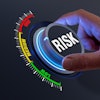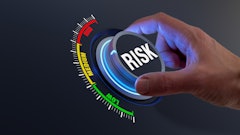Healthy attendance, more mature lineup of solutions for radio frequency identification mark Dallas conference, ABI Research finds
Oyster Bay, NY — March 6, 2006 — This year's RFID World conference in Dallas saw healthy attendance and a more mature lineup of solutions for radio frequency identification, according to technology consultancy ABI Research.
Erik Michielsen, director of RFID and ubiquitous networks research at ABI, reported that the show was extremely well-attended, both by vendors pursuing business development deals within the RFID ecosystem, and by end-users who are either taking initial steps into RFID, or secondary steps beyond compliance and pilots into integrated solutions. "There has been a tremendous turnout," he said.
Maturing Lineups
At the exhibition, Michielsen observed: "One of the things I've noticed is that companies such as Alien Technologies, Symbol Technologies, ThingMagic, SAMSys and Avery Dennison are offering more mature solutions. The industry is now getting in line with standards and interoperability, and is increasingly focused around scalability and performance."
Meanwhile, in the conference sessions, Texas Instruments discussed the evolution of the overall marketplace and the need for RFID solutions across many technologies and vertical markets. American Express examined the opportunities RFID presents in financial service and contactless commerce markets, while DHL discussed the need for sharper RFID focus on logistics and connecting manufacturing, distribution and retail locations.
Upbeat, But Challenges Remain
On the public sector side, the U.S. Food and Drug Administration (FDA) spoke on the need for continued focus on RFID in pharmaceutical deployments and how that sector is dependent on legislation as a driver, according to ABI.
The generally upbeat tenor of the event did not mean that there are no challenges ahead. One of those is tag price.
"In that connection," said Michielsen, "the industry wants to see a clear commitment from Wal-Mart that it will make a transition to Gen2 technology in mid-2006 so that the market can focus less on consuming first-generation technology and more on putting things in place to exploit the second generation."
There was also a call for the senior leaderships of large RFID technology vendors to collaborate in ensuring a uniform direction for the further development of the industry.
Additional Articles of Interest
— A recent independent study revealed that Wal-Mart customers are finding the items they wanted in stock more often due to the retailer's use of RFID technologies when compared to control stores. Read more in "Wal-Mart Achieving Improved On-shelf Availability with RFID, Study Finds" on SDCExec.com.
— RFID technology has the potential to change the way supply chains are managed, but in order to be effective businesses need to take a holistic look at the deployment. Read more in the SDCExec.com article "Time for RFID: Applying RFID in the Supply Chain."
Oyster Bay, NY — March 6, 2006 — This year's RFID World conference in Dallas saw healthy attendance and a more mature lineup of solutions for radio frequency identification, according to technology consultancy ABI Research.
Erik Michielsen, director of RFID and ubiquitous networks research at ABI, reported that the show was extremely well-attended, both by vendors pursuing business development deals within the RFID ecosystem, and by end-users who are either taking initial steps into RFID, or secondary steps beyond compliance and pilots into integrated solutions. "There has been a tremendous turnout," he said.
Maturing Lineups
At the exhibition, Michielsen observed: "One of the things I've noticed is that companies such as Alien Technologies, Symbol Technologies, ThingMagic, SAMSys and Avery Dennison are offering more mature solutions. The industry is now getting in line with standards and interoperability, and is increasingly focused around scalability and performance."
Meanwhile, in the conference sessions, Texas Instruments discussed the evolution of the overall marketplace and the need for RFID solutions across many technologies and vertical markets. American Express examined the opportunities RFID presents in financial service and contactless commerce markets, while DHL discussed the need for sharper RFID focus on logistics and connecting manufacturing, distribution and retail locations.
Upbeat, But Challenges Remain
On the public sector side, the U.S. Food and Drug Administration (FDA) spoke on the need for continued focus on RFID in pharmaceutical deployments and how that sector is dependent on legislation as a driver, according to ABI.
The generally upbeat tenor of the event did not mean that there are no challenges ahead. One of those is tag price.
"In that connection," said Michielsen, "the industry wants to see a clear commitment from Wal-Mart that it will make a transition to Gen2 technology in mid-2006 so that the market can focus less on consuming first-generation technology and more on putting things in place to exploit the second generation."
There was also a call for the senior leaderships of large RFID technology vendors to collaborate in ensuring a uniform direction for the further development of the industry.
Additional Articles of Interest
— A recent independent study revealed that Wal-Mart customers are finding the items they wanted in stock more often due to the retailer's use of RFID technologies when compared to control stores. Read more in "Wal-Mart Achieving Improved On-shelf Availability with RFID, Study Finds" on SDCExec.com.
— RFID technology has the potential to change the way supply chains are managed, but in order to be effective businesses need to take a holistic look at the deployment. Read more in the SDCExec.com article "Time for RFID: Applying RFID in the Supply Chain."
- More research from ABI Research.


















